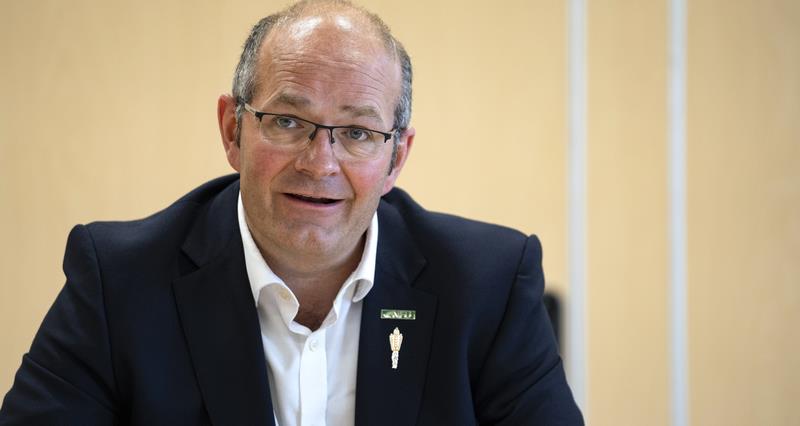
The impact of the budget will be the 'final straw' for many farmers and could lead to food price rises, the NFU has warned.
The government's budget, unveiled by Chancellor Rachel Reeves on Wednesday (30 October), has been met with widespread criticism by the industry.
The NFU called it a 'blow' to British farming and its consequences could be heightened food production costs at a time when farmers 'cannot absorb it'.
“This budget not only threatens family farms but will also make producing food more expensive," warned the union's president, Tom Bradshaw.
"This means more cost for farmers who simply cannot absorb it, and it will have to be borne by someone. Farmers are down to the bone and gristle, who is going to carry these costs?
“It’s been a bad budget for farm confidence, which is already at an all-time low. Farmers, including tenants, have more uncertainty and more worry, not less."
Perhaps the most controversial measure announced was that agricultural property relief will be reformed from April 2026.
In addition to the existing nil-rate bands, the 100% rate of relief will continue for the first £1 million of combined agricultural and business assets and will be 50% thereafter.
Mr Bradshaw accused the Labour Party of breaking its promise: “When you look farmers in the eye and make them a promise, keep it.
"The shameless breaking of those promises on agricultural property relief will snatch away much of the next generation’s ability to carry on producing British food, plan for the future and shepherd the environment."
The end of the direct payment phaseout will also be accelerated. The fastest reductions will be for those who received more than £100,000 in direct payments in 2020 as these businesses will receive no more than £8,000 in 2025.
Mr Bradshaw said farmers would be 'reeling' from this, as it would amount to a significant cut to farm incomes at a time when their replacement schemes still 'leaves many businesses locked out'.
The government also confirmed the National Living Wage increase of 6.7%, making it £12.21. The National Minimum Wage for 18 to 20 year olds will increase by 16.3% to £10.00 per hour.
“It’s clear the government does not understand that family farms are not only small farms, and that just because a farm is a valuable asset it doesn’t mean those who work it are wealthy," Mr Bradshaw said.
Together with wage rises and added costs to businesses that apply across the economy, he warned the policies would raise 'serious questions' about the future of British food security and the impact on food supply and prices.
"Let’s not sugar-coat this, every penny the chancellor saves from this will come directly from the next generation having to break-up their family farm."
The agricultural budget for England has also been maintained, with Defra confirming this year’s budget to be £2.6 billion to reflect the underspend from the previous government.
